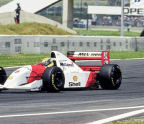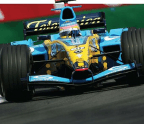
Hydrogen has long been touted as the silver bullet to answer motorsport’s sustainability problem. Water is the sole byproduct of fuel cell vehicles using green hydrogen – that is, hydrogen produced by a process of electrolysis using renewable energy sources, rather than derived from natural gases where carbon monoxide is also emitted in its production – and a growing number of programmes are seeking to exploit its credentials. They range from internal combustion engines (ICEs) converted to run on hydrogen, which still emit some nitrogen oxides (NOx), to fuel cell electric vehicles (FCEVs) that use hydrogen to power electric motors.
The first racing championship to run on fuel cell technology, Extreme H, will kick off next year, but there is little consensus on whether hydrogen will become widely used in racing, let alone at what stage. Significant hurdles must be overcome to fully win over sceptics yet to be convinced by factors of cost and safety, while battery electric vehicles (BEVs) have reached a point of technical maturity that seems a long way off yet for hydrogen, which is still in the early stages of being optimised.
Fuel cells are especially complicated. Through a process of reverse electrolysis, hydrogen meeting air is converted into electrical power, which uses up energy that contributes to making it less efficient than EVs using power stored in batteries. This factor, and the limited number of commercially available options using hydrogen propulsion as a consequence, goes some way to explaining why Toyota is the only major OEM to have publicly demonstrated the technology in a motorsport setting so far.
Those who have taken the plunge aren’t blind to the challenges, but they are optimistic.
“There’s a lot to do and a lot to have a look at, but it’s like a snowball at the moment,” says AVL Racetech motorsport






